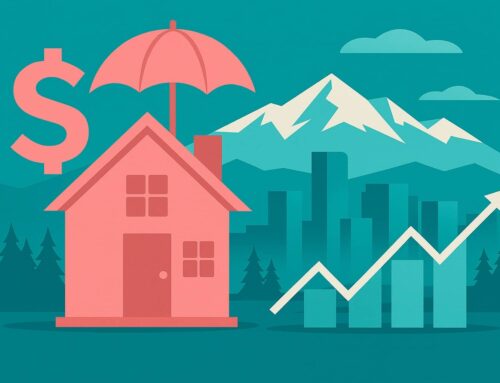Can I Sell My House While In Forbearance?
Selling a home during forbearance can be an intimidating prospect, especially when you’re facing financial hardship. But with the right guidance and preparation, navigating this process successfully is possible. In this article, we’ll cover everything you need to know about selling your house while in forbearance – from understanding how it works to tips for getting through the sale quickly and without hassle. If you’re considering taking this route, read on for valuable insights that will help make the experience smoother.
There are plenty of reasons why someone might choose to sell their home while in forbearance: perhaps they’re looking to move closer to family or take advantage of better job opportunities elsewhere; maybe they want to downsize due to retirement or simply upgrade their current property. Whatever the case may be, there are some important considerations sellers should keep in mind before embarking on this journey.
The good news is that even though selling a house under these circumstances can feel overwhelming at first glance, borrowers who understand what’s involved and plan ahead have every chance of making a successful transition into their next chapter – whether buying or renting. It all starts with knowing what exactly sellers need to do when navigating home sales while in forbearance – and that’s where we come in!
Options For Selling A Home During Forbearance
After understanding the definition of forbearance, it’s important to consider whether selling a home during this period is an option. Although many lenders are willing to work with borrowers in forbearance and approve them for sale transactions, some risks may be involved that should be carefully weighed before making any decisions.
For starters, homeowners who have missed payments while in forbearance will most likely need to pay off their delinquency prior to closing on the sale. Depending on how far behind they were when they entered into forbearance, this could end up being a significant amount of money. Furthermore, if the borrower has not been able to make full mortgage payments since entering into forbearance due to financial hardship or other reasons, then they may still owe arrearages at the time of closing, even after paying off the delinquency balance. This means that sellers must plan ahead and budget for these potential costs associated with selling during a forbearance period.
The next section will discuss the pros and cons of selling while in forbearance.
Pros And Cons Of Selling While In Forbearance
Selling a home while in forbearance is complex. There are pros and cons to consider before making the decision. On the one hand, if you’re behind on payments and need to sell quickly, selling during forbearance may be your best option. You can pay off any missed mortgage payments with proceeds from the sale of your house. However, this route could also lead to problems down the line. If you don’t have enough money left over after paying off what’s owed on your loan, you might end up owing more than when you started. Additionally, lenders often require that all outstanding debts must be paid prior to closing; these include taxes, fees, and other liens that should have been taken into consideration when you first entered into forbearance. Before making any decisions about selling while in forbearance, it’s important to weigh all the potential risks against the rewards carefully – both short-term and long-term.
Pros:
- You can avoid foreclosure: Selling a home while in forbearance can prevent foreclosure, which can have a negative effect on your credit score.
- You can move on with your life: Selling a home while in forbearance can allow you to move on with your life, whether that means finding a new home or paying off other debts.
- You can avoid additional payments: Selling a home while in forbearance can help you avoid any additional payments, such as late fees or additional fees from your lender.
Cons:
- You may not be able to get the best price for your home: Selling a home while in forbearance can limit your options for potential buyers. This can lead to you not getting the best price for your home.
- You may be ineligible for certain loan programs: Selling a home while in forbearance can make you ineligible for certain loan programs, such as FHA or VA loans.
- You may face additional taxes: Selling a home while in forbearance can result in additional taxes, such as capital gains taxes.
Steps To Take Before Selling A Home During Forbearance
If you’re contemplating selling your house while in forbearance, then congratulations! You’ve taken the first step to a successful real estate transaction. But before signing on the dotted line and shaking hands with that lucky buyer, there are several things you need to consider:
- Check Your Credit Score: Selling while still under a loan may hurt your credit score if not done properly. It is important to check your credit report prior to listing so you will know where you stand financially.
- Get Pre-Approved for New Financing: Before putting your home on the market, it’s best to get pre-approved for new financing from another lender outside of forbearance in order to ensure that when buyers come knocking, all of their financial questions have already been answered.
- Speak With An Attorney: This is especially true if this isn’t your first time selling a home or if you’re dealing with any tricky legal issues during the process. A real estate attorney can provide invaluable advice regarding contracts and other potential pitfalls of selling while in forbearance.
- Work With An Experienced Realtor: Working with an experienced realtor who understands how to navigate the complexities of selling while in forbearance will be immensely helpful throughout the entire process – from pricing and marketing through closing day paperwork and beyond.
Now that you’ve read up on what steps must take place prior to taking advantage of opportunities created by being in forbearance let’s delve into some of the potential pitfalls related to selling while in such a situ
Potential Pitfalls Of Selling While In Forbearance
Selling a house while in forbearance can be tricky, and it’s important to consider the implications before making any decisions. A homeowner could end up owing more at closing than they anticipated due to increased loan fees or loss of equity. Additionally, if the lender requires immediate payment of past-due amounts when selling during forbearance, this could cause financial hardship.
It’s also essential for homeowners to understand that selling a home while in forbearance may have consequences on their credit score. Depending on how far behind payments are, lenders will report delinquencies to the major credit bureaus, which can impact your credit rating significantly. Therefore, it’s critical to research all available options and weighs the pros and cons carefully before deciding whether or not selling while in forbearance is the right choice. This leads us to consider what effect such a decision might have on one’s credit score…
Impact On Credit Score
Selling a house while in forbearance can have an impact on your credit score. It is important to understand how the process works and what steps you need to take in order to ensure that the sale does not negatively affect your credit rating.
- First, it’s essential to keep up with payments during the forbearance period. If lenders report missed payments or late payments due to a lack of payment history during forbearance, this could lead to negative marks on your credit report. The best way to avoid this is by staying current with your mortgage payments throughout the entire process.
- Second, be sure you are aware of any fees associated with selling a home while in forbearance. Many lenders will require additional fees for processing paperwork related to the sale, such as title insurance or closing costs. You should also make sure these fees are paid before completing the sale so they don’t appear as unpaid debt later down the line.
- Thirdly, consider seeking professional advice from a real estate attorney or financial advisor if needed. A qualified financial consultant can provide guidance on navigating through complex legal documents related to the sale and advise on potential pitfalls that may occur when selling a house while in forbearance. This could save time and money in the long run and help protect your credit score at the same time.
Ultimately, understanding how selling a house impacts one’s credit score is key when considering entering into a sale agreement during forbearance status. Taking proactive measures like staying current with mortgage payments, researching all applicable fees and consulting professionals where necessary can help minimize risks and maximize success for those looking to sell their homes during this time period.
So, Can I Sell My House While In Forbearance?
It is possible to sell a home while in forbearance, but it’s important to understand the process and potential pitfalls of this decision. Although selling during forbearance may appear to be an ideal solution for homeowners facing financial hardship, there are many factors at play that should not be overlooked.
For those who decide to move forward with the sale of their home while in forbearance, they must ensure that all paperwork is properly filed with their lender and any other necessary third parties. Failing to do so can have serious implications on both the seller’s credit score and overall economic standing. Furthermore, if the process isn’t completed correctly, sellers could face additional fees or legal action.
Despite these challenges, selling a house while in forbearance doesn’t have to be complicated or costly. With the right guidance from professionals experienced in real estate transactions, you can make sure your best interests are protected throughout the entire process – giving you peace of mind as you navigate through some of life’s more difficult moments.
If you’re looking for a realtor who can help you navigate the complexities of selling your home while in forbearance, look no further! The Storck Team is here to help. Contact me today to discuss how I can help you make the most of your forbearance period and ensure it doesn’t negatively impact your home sale. Let’s get started!










